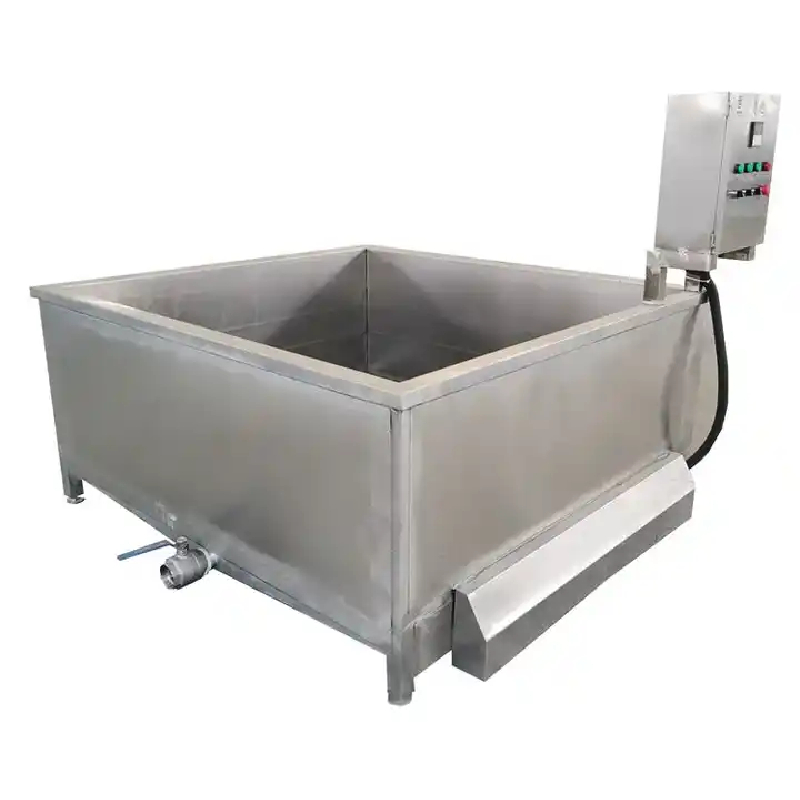slaughter washer and cleaner
Dec . 12, 2024 13:51 Back to list
slaughter washer and cleaner
The Importance of Slaughter Washers and Cleaners in the Meat Processing Industry
In the meat processing industry, the use of slaughter washers and cleaners is essential for maintaining hygienic standards and ensuring food safety. With an increasing focus on the quality of meat products and consumer health, the role of sanitation equipment such as slaughter washers cannot be overstated. These machines help to streamline cleaning processes, minimize contamination risks, and comply with regulatory standards.
Understanding Slaughter Washers
Slaughter washers are specialized cleaning machines designed to clean and sanitize meat processing equipment, floors, and surfaces within slaughterhouses. Their primary function is to remove blood, hair, feathers, and other biological materials that can harbor harmful pathogens. By using these machines, processors can effectively reduce the risk of cross-contamination during the meat production process.
Typically, slaughter washers employ a combination of high-pressure water jets and biodegradable detergents to eliminate grime and bacteria. The high-pressure jets are particularly effective in dislodging stubborn particles, while the detergents facilitate the breakdown of organic materials. Some advanced models even utilize steam cleaning technology, which can further enhance sanitation by using heat to eradicate bacteria and viruses.
Benefits of Using Slaughter Washers
1. Enhanced Hygiene Hygiene is paramount in the meat processing industry. Slaughter washers ensure that all surfaces are thoroughly cleaned and sanitized, significantly reducing the risk of foodborne illnesses.
2. Improved Efficiency Traditional cleaning methods often involve labor-intensive processes that can be time-consuming and inconsistent. Slaughter washers automate these processes, enabling quicker and more consistent cleaning results. This efficiency allows workers to focus on other critical aspects of meat processing.
3. Regulatory Compliance The meat industry is subject to strict regulations regarding hygiene and food safety. Slaughter washers help facilities comply with these regulations, thereby avoiding potential fines and maintaining their operational licenses. Regular and effective cleaning can also prevent recalls, which can be costly and damaging to a brand's reputation.
slaughter washer and cleaner

4. Cost-Effectiveness While the initial investment in slaughter washers might be significant, the long-term savings they provide can be substantial. By reducing labor costs and the risk of contamination, these machines can lead to lower operational costs over time.
5. Versatility Many slaughter washers are designed to be versatile, capable of cleaning not just large equipment, but also smaller tools and surfaces. This multifunctionality makes them an ideal choice for meat processing plants of all sizes.
Challenges and Considerations
Despite the numerous advantages slaughter washers offer, there are certain challenges and considerations that facility managers must keep in mind. Regular maintenance of the washers is crucial to ensure their effectiveness. Malfunctioning machines can lead to inadequate cleaning, compromising food safety.
Furthermore, training employees on the proper use of these machines is essential. Staff should be well-informed about the cleaning protocols, including which detergents to use, how to operate the equipment safely, and the importance of thorough cleaning practices. Improper use can negate the benefits of having sophisticated cleaning technology.
Another factor to consider is the environmental impact of the detergents and methods used. It is vital for meat processing plants to choose eco-friendly cleaning solutions that meet sanitation requirements without harming the environment. This alignment with sustainable practices can also appeal to environmentally-conscious consumers.
Conclusion
In summary, slaughter washers and cleaners play a vital role in ensuring hygiene and food safety in the meat processing industry. By streamlining cleaning processes, these machines enhance operational efficiency, support compliance with regulations, and ultimately protect consumer health. While challenges exist in the maintenance and training aspects, the benefits they bring far outweigh the drawbacks. As the meat industry continues to evolve, the importance of effective sanitation equipment will only increase, making slaughter washers an indispensable part of modern meat processing. By investing in these technologies, meat processors can ensure their products are safe, high-quality, and produced in an environmentally responsible manner.
-
Hot Sale 24 & 18 Door Rabbit Cages - Premium Breeding Solutions
NewsJul.25,2025
-
Automatic Feeding Line System Pan Feeder Nipple Drinker - Anping County Yize Metal Products Co., Ltd.
NewsJul.21,2025
-
Automatic Feeding Line System Pan Feeder Nipple Drinker - Anping County Yize Metal Products Co., Ltd.
NewsJul.21,2025
-
Automatic Feeding Line System - Anping Yize | Precision & Nipple
NewsJul.21,2025
-
Automatic Feeding Line System - Anping Yize | Precision & Nipple
NewsJul.21,2025
-
Automatic Feeding Line System-Anping County Yize Metal Products Co., Ltd.|Efficient Feed Distribution&Customized Animal Farming Solutions
NewsJul.21,2025






